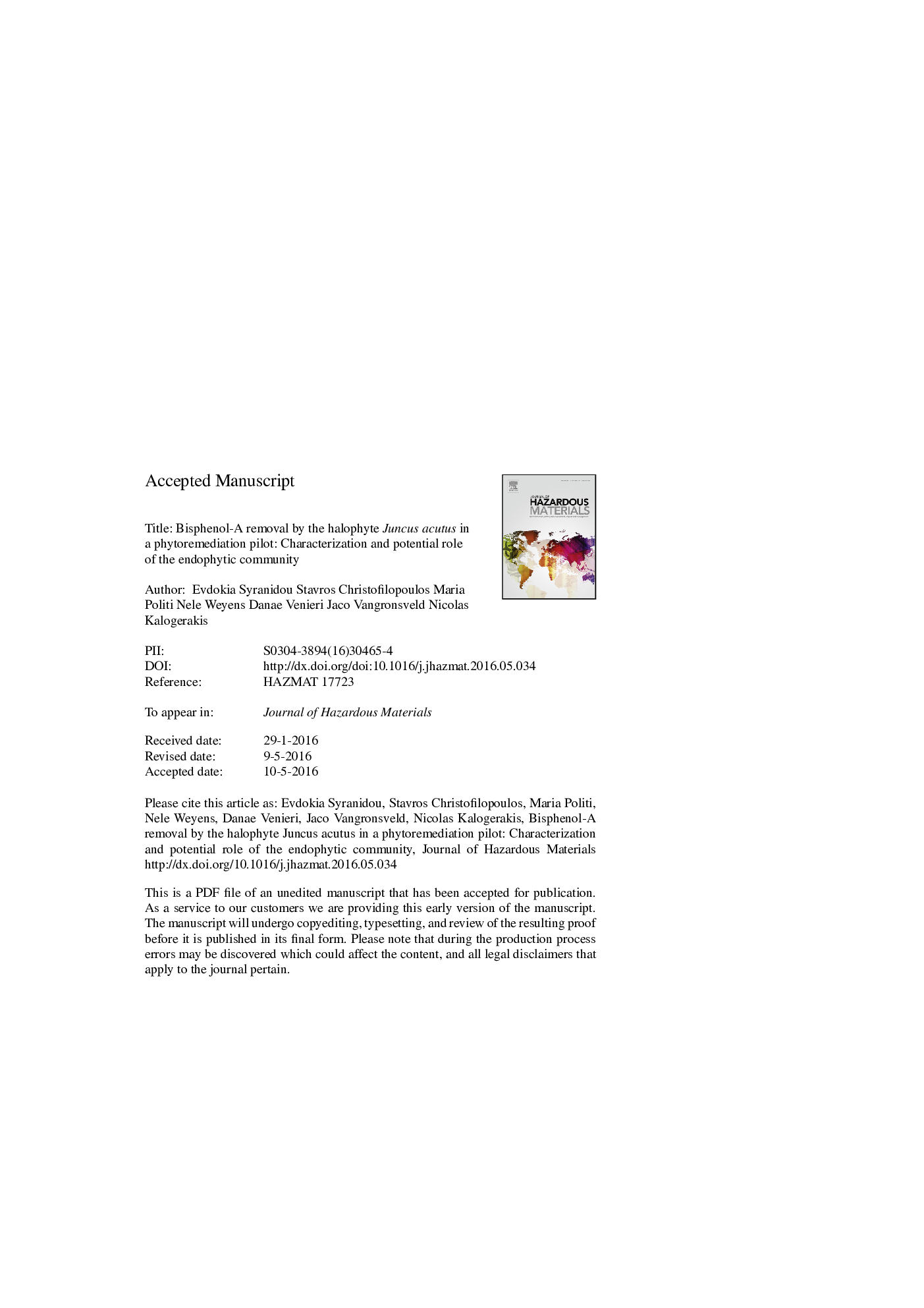| Article ID | Journal | Published Year | Pages | File Type |
|---|---|---|---|---|
| 4979966 | Journal of Hazardous Materials | 2017 | 32 Pages |
Abstract
A phytoremediation pilot emulating a shallow aquifer planted with Juncus acutus showed to be effective for remediating Bisphenol-A (BPA) contaminated groundwater. Biostimulation with root exudates, low molecular weight organic acids, of J. acutus did not improve BPA-degradation rates. Furthermore, the endophytic bacterial community of J. acutus was isolated and characterized. Many strains were found to possess increased tolerance to metals such as Zn, Ni, Pb and Cd. Moreover, several endophytic bacterial strains tolerated and even used BPA and/or two antibiotics (ciprofloxacin and sulfamethoxazole) as a sole carbon source. Our results demonstrate that the cultivable bacterial endophytic community of J. acutus is able to use organic contaminants as carbon sources, tolerates metals and is equipped with plant-growth promoting traits. Therefore, J. acutus has potential to be exploited in constructed wetlands when co-contamination is one of the restricting factors.
Related Topics
Physical Sciences and Engineering
Chemical Engineering
Chemical Health and Safety
Authors
Evdokia Syranidou, Stavros Christofilopoulos, Maria Politi, Nele Weyens, Danae Venieri, Jaco Vangronsveld, Nicolas Kalogerakis,
